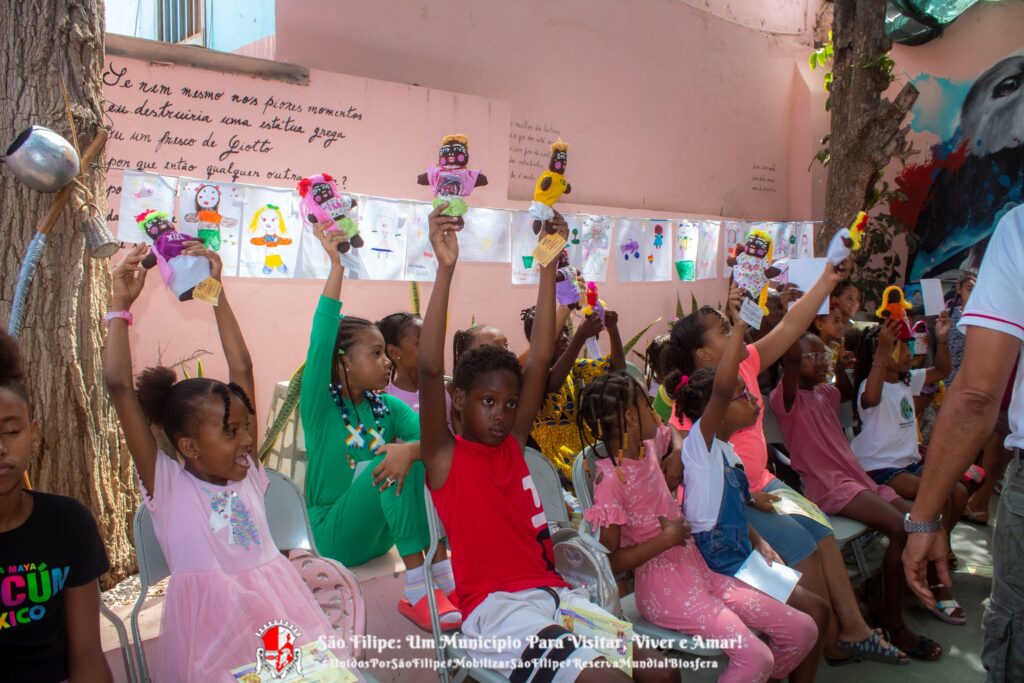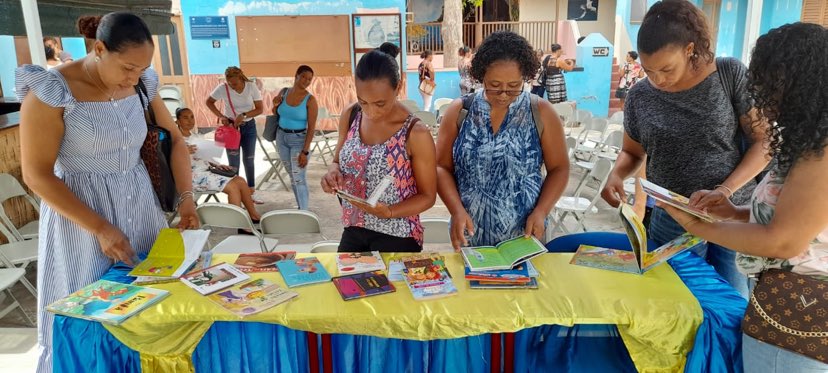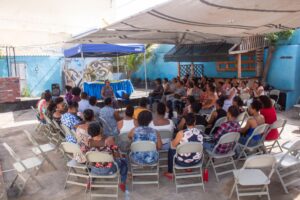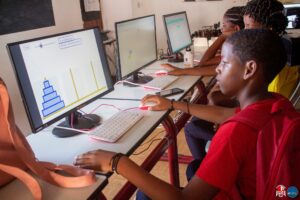Libraries at the heart of a UNESCO Learning City: An interview with the city of São Filipe, Cabo Verde
14 March 2024

UNESCO’s Global Network of Learning Cities brings together 356 cities across 79 countries to provide expertise, spark ideas, and share good practice on policy that promotes lifelong learning for all.
A city can earn the designation of a “Learning City” by mobilizing resources to effectively help people at all stages of life access learning opportunities. They should create and carry out strategies that support inclusive learning in the education system and a vibrant culture of learning throughout life. Given these goals, libraries can be essential components of learning cities.
São Filipe, Cabo Verde was among the 64 new Learning Cities to join the network in February 2024. We spoke with focal point Eva Spínola, Councilor for Education, Vocational Training and Higher Education, about how a library played a central role in transforming their city into a UNESCO Learning City:
Could you share some background about the city of São Filipe?

São Filipe and the island of Fogo have seen a constant and systematic loss of capable young staff, who could help in the growth and development of the municipality and the island in general, therefore, it has become urgent and necessary to implement public policies for youth, which aim to overcome the serious problem of youth unemployment.
The municipality has modern educational and vocational training infrastructures, namely 24 Compulsory Basic Education schools teaching from the 1st to the 6th grade, four secondary education establishments and two Vocational Training Centers, housing about 5,000 students, not counting the more than 500 young students of higher education, but the municipality did not have any public library.
Education is one of the main pillars of development of any society, Cape Verde and São Filipe is no exception. It will not be possible to promote the development of our municipality if we do not invest heavily in the education and training of our youth.
This is how the project to implement and open a Municipal Library in São Filipe came about in 2021-2022, the year in which the city completed its 100 years of elevation to the category of City.
A modern Library, but which preserves the History and Culture of São Filipe, known as the City of Townhouses. We can say a great tribute to the city of São Filipe itself!
How have libraries helped transform your city into a UNESCO Learning City?

I think that the existence of a library is crucial for the preservation and conservation of knowledge and for the dissemination of information, inserting communities in general to knowledge, through actions to promote the public, such as workshops, cultural fairs, reading projects, exhibitions, etc. Thus playing a crucial role in the transformation of a city into a UNESCO City of Learning.
For example, in São Filipe, the Opening of the New Municipal Library of São Filipe, the City of São Filipe began to provide its visitors and inhabitants with a new library specialized in Cape Verdean literature and that provides an audiovisual room with computers connected to the internet so that everyone can have access to virtual libraries from all over the world and other information maintained.
There is also a space for children, encouraging reading from the little ones. This library’s mission is to serve as an educational and knowledge preservation institution and spaces for the promotion of reading and cultural training through bibliographic collections that it houses, preserves and disseminates.
In this space, in addition to promoting daily reading, training programs are also carried out periodically, such as the São Filipe Coding Summer Boot camp program, (summer and programming/robotics camp), painting and reading workshop, screening of films about the city of São Filipe, documentaries, book and magazine launches, hosting events related to reading (Reading Contest), Painting Exhibition, Craft Fair, Arts Workshops, Technology Fair, and more.
What advice would you give to other cities to utilise their libraries to support lifelong learning?

We are still a new library, but we leave some advice for cities that want to use their libraries to support lifelong learning:
- As with São Filipe, I think cities should ensure that the library offers a variety of resources, including printed books, e-books, audiovisual materials, and internet access. This caters to the different needs and preferences of users.
- Offer Continuing Education Programs by developing literacy programs for all ages. In addition, offer courses, workshops, and lectures on relevant topics such as digital skills, languages, arts, and sciences;
- Collaborate with schools, universities, and other educational institutions. This can include joint programs, expert lectures, and resource exchange.
- Encourage creative activities by providing a space to explore talents and self-expression.
- Organize events that promote local culture, such as book launches, meet-and-greets with authors, literary festivals, and artistic performances.
- Provide computers, internet access, and digital skills training. This is fundamental to learning in today’s world.
- Promote social inclusion and the exchange of knowledge between different groups. The library should be a welcoming space for everyone, regardless of age, background, or abilities.
- Finally, regularly assess the impact of library activities on community learning. Be willing to adapt programs and services based on user feedback.
We thank Ms. Eva Spínola for sharing her insight! Photos and posts of some of the activities carried out at the Municipal Library of São Filipe can be found here: (20+) Câmara Municipal De São Filipe | Facebook.